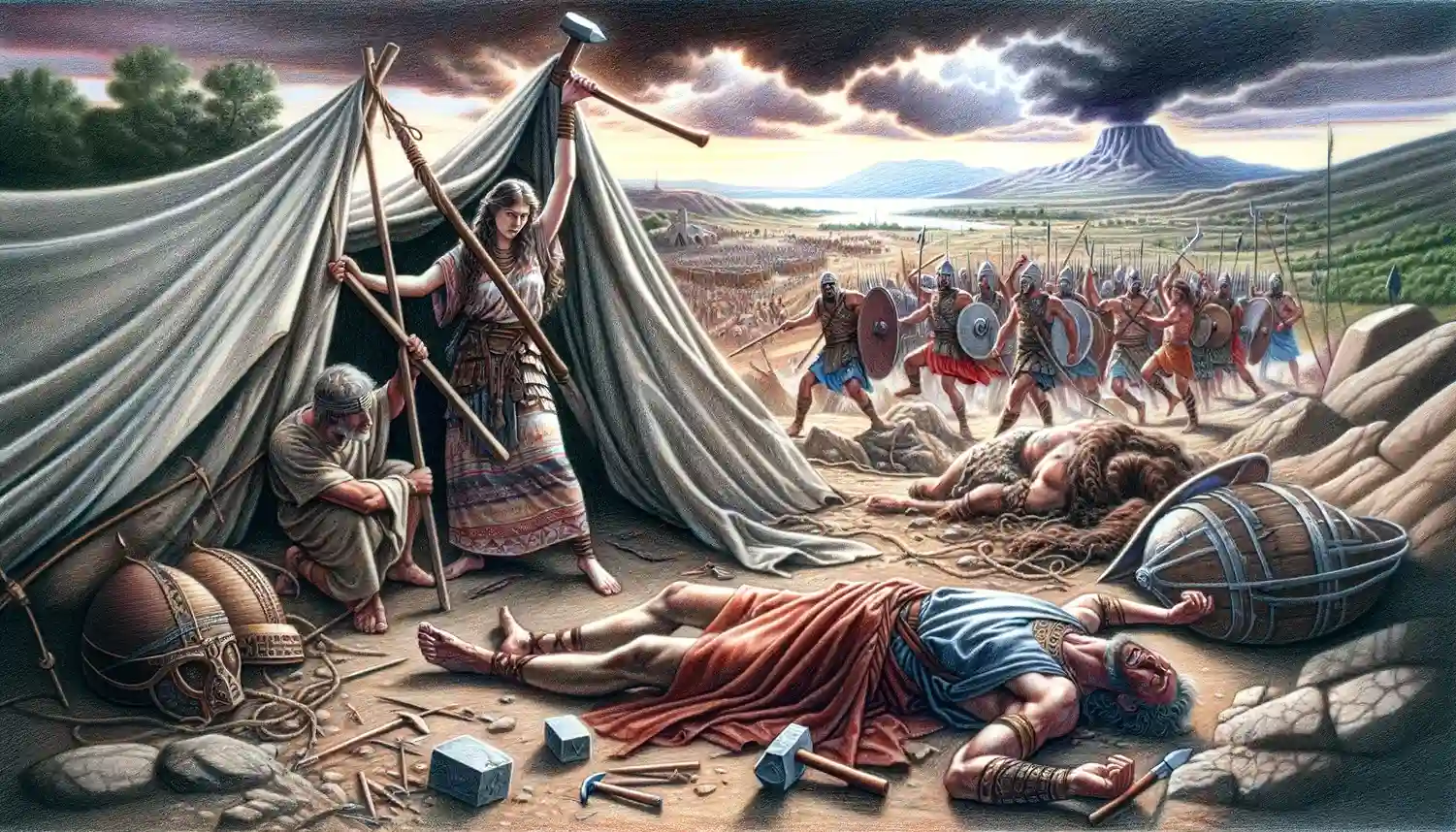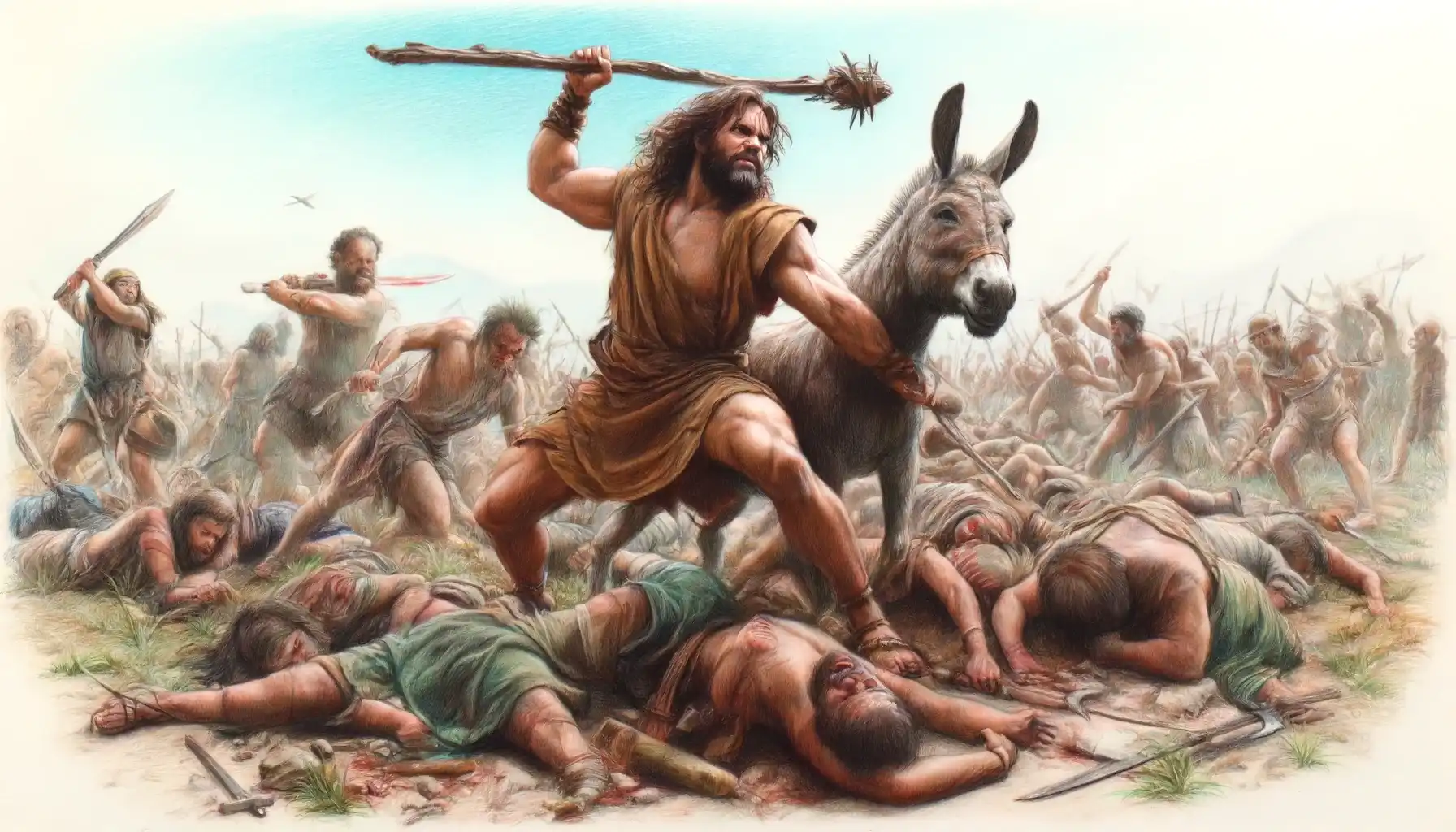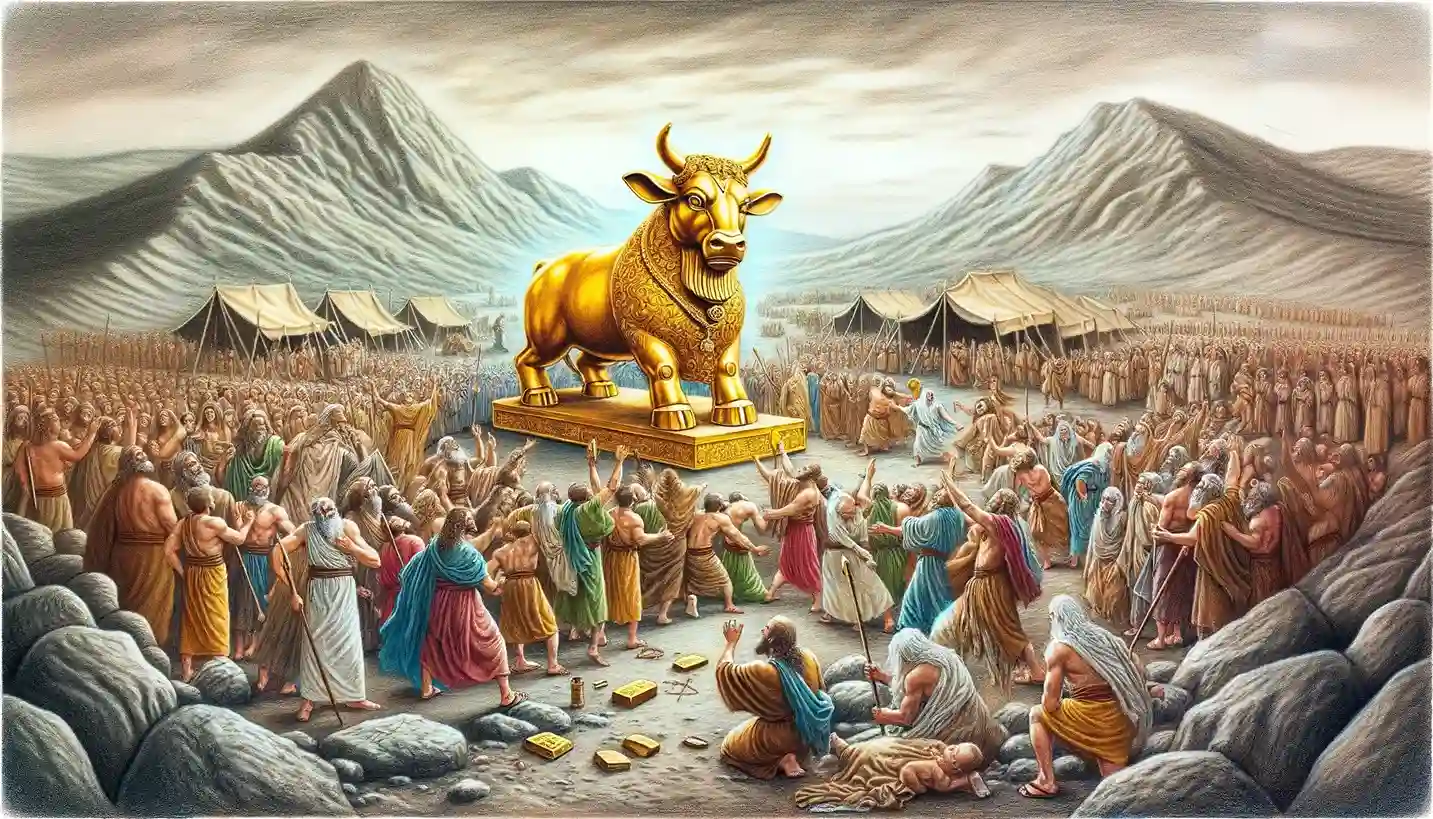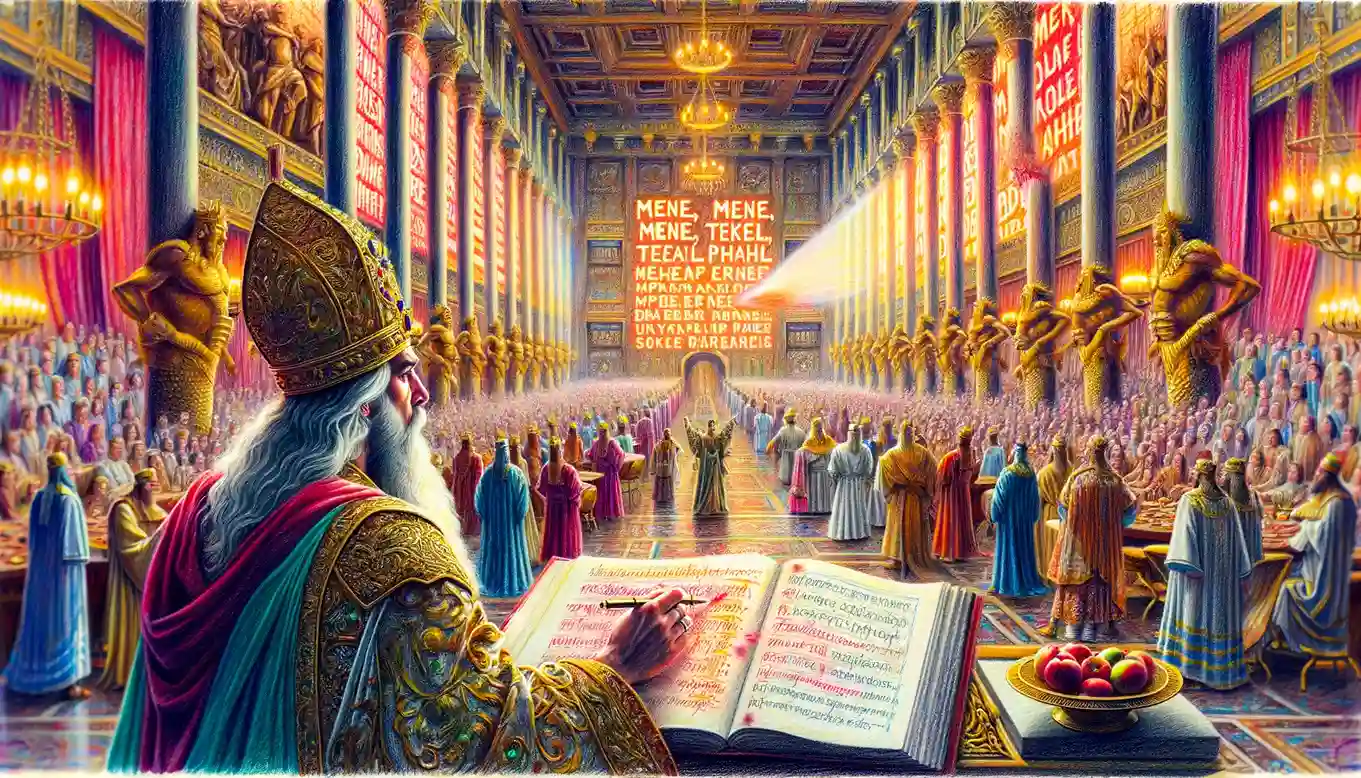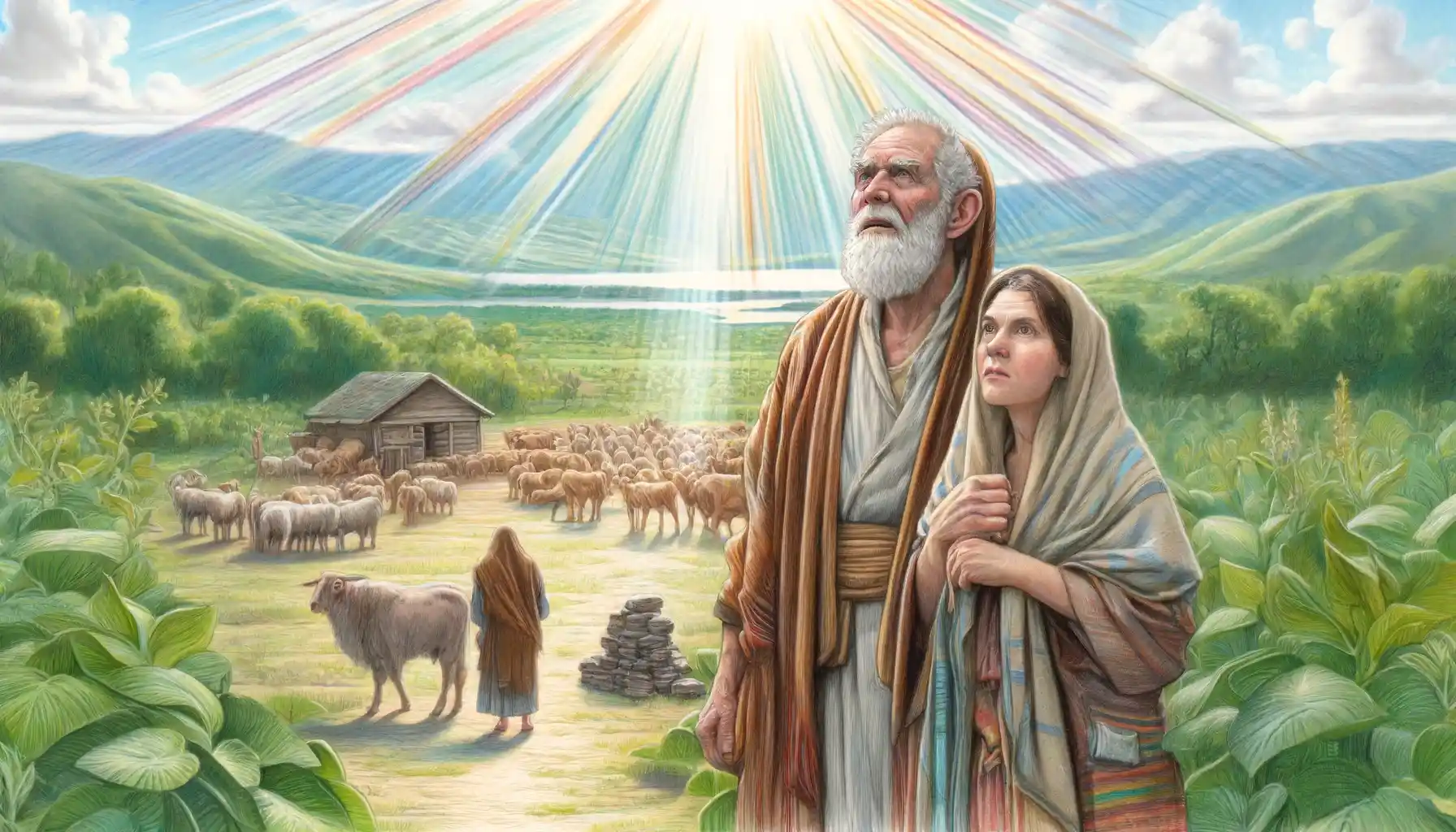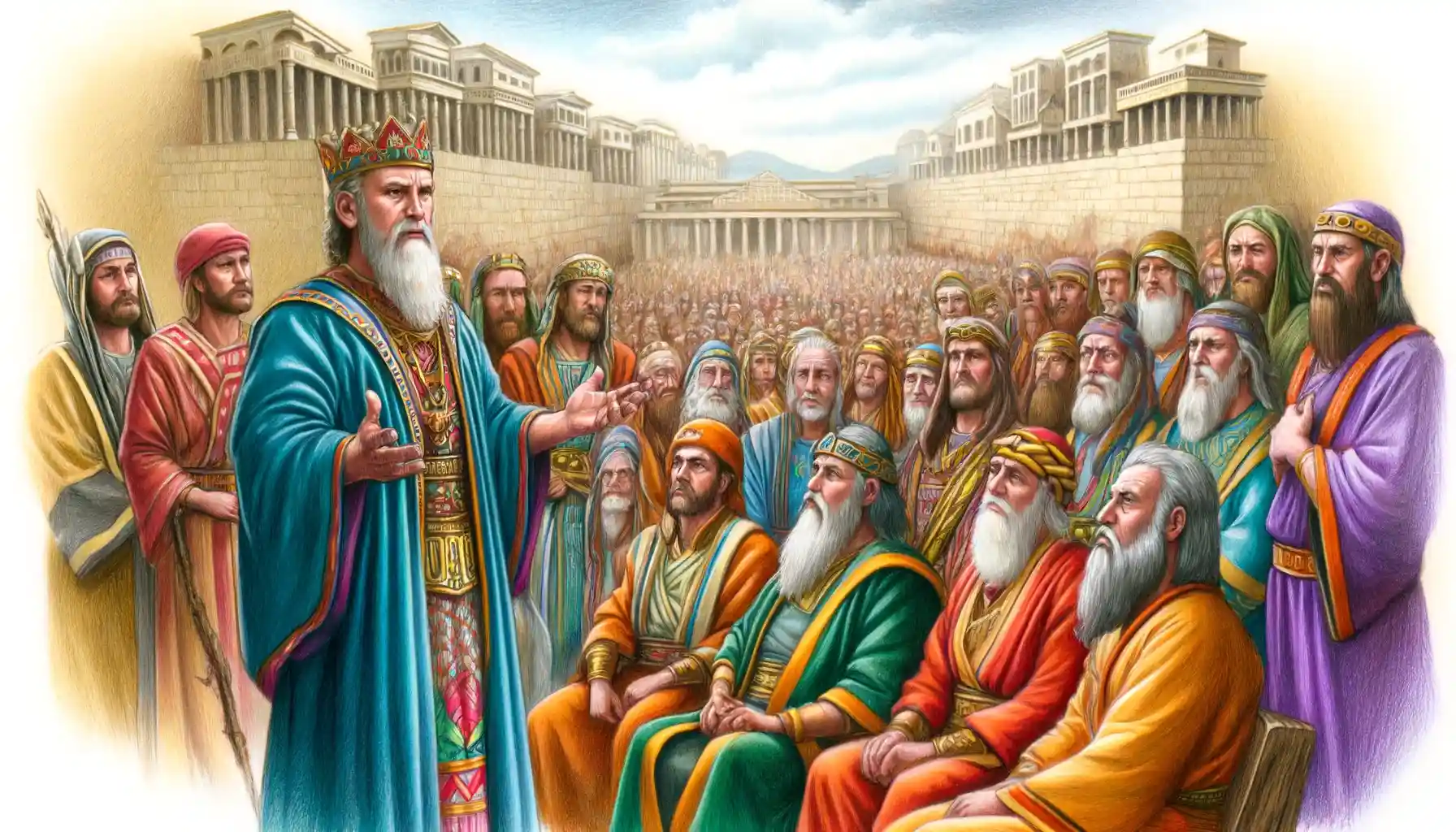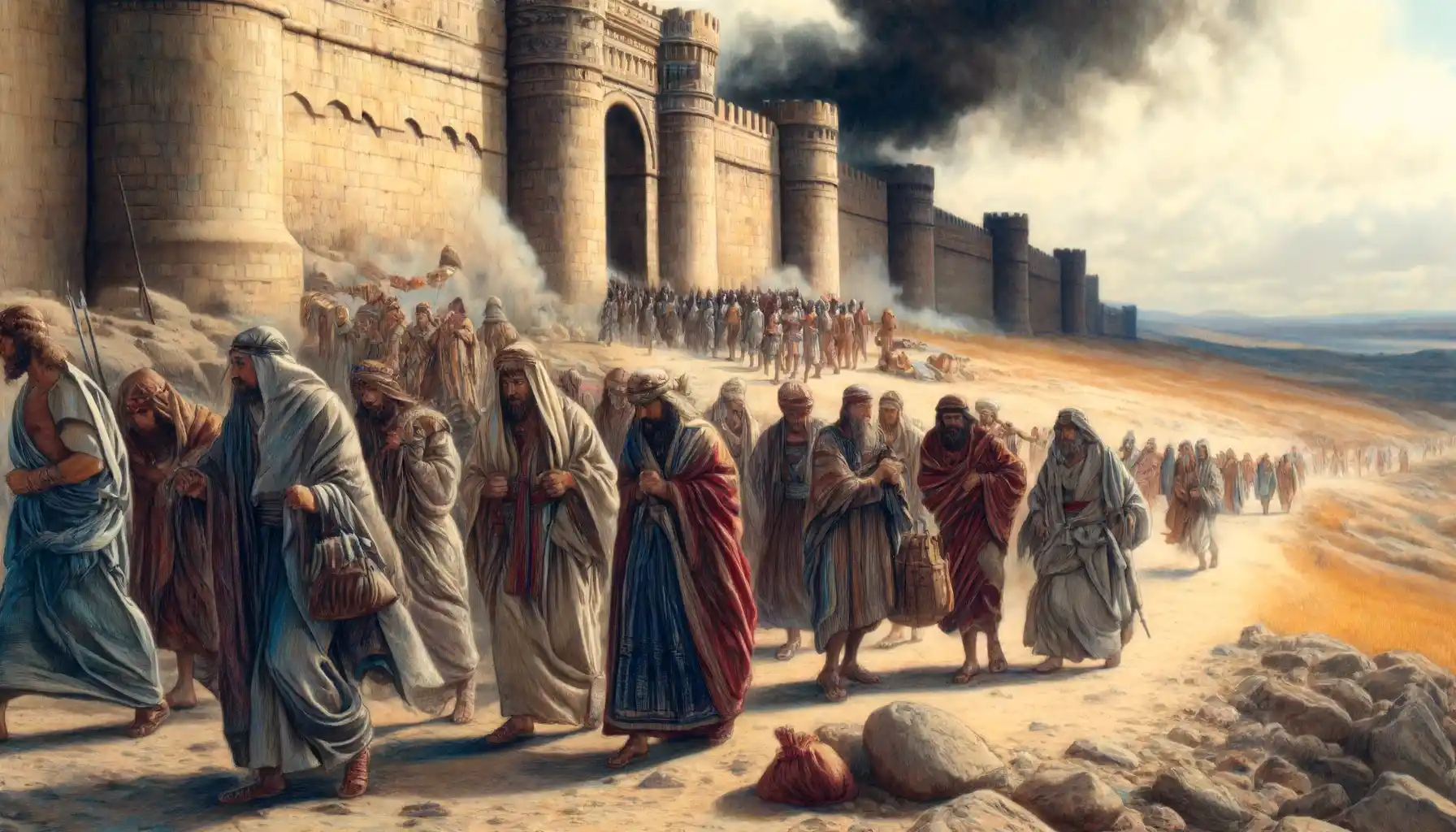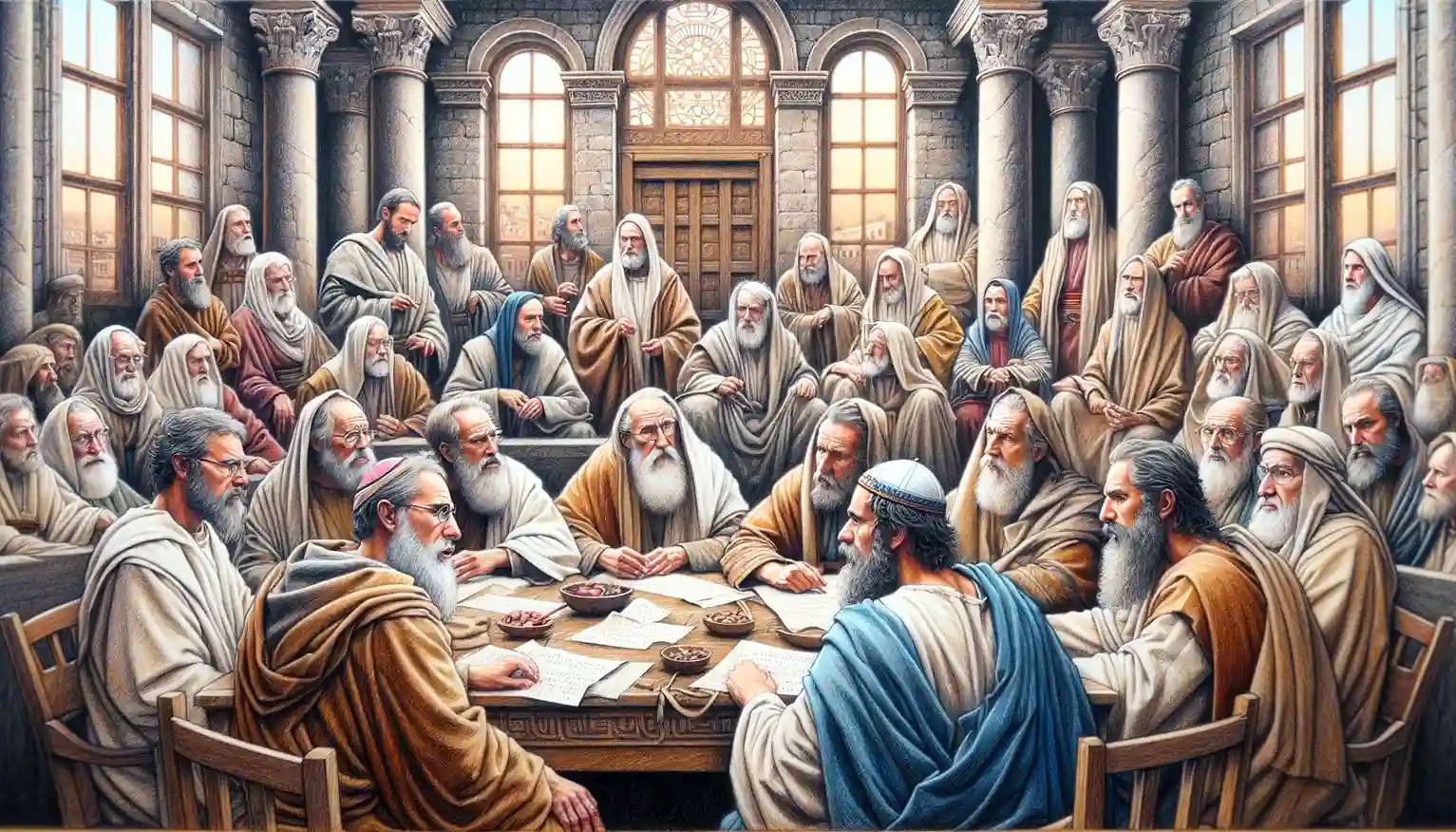The defeat of Sisera, recounted in Judges 4-5, highlights Israel’s deliverance from Canaanite oppression through the leadership of Deborah and Barak and the decisive act of Jael, resulting in a significant victory and peace for Israel.
Genesis 19:24-25 describes the dramatic and divine destruction of the cities of Sodom and Gomorrah by God, who rained down sulfur and fire upon them due to their wickedness.
Samson, empowered by the Spirit of the Lord, killed 1,000 Philistines with the jawbone of a donkey, demonstrating God’s deliverance of Israel through his supernatural strength.
The Golden Calf Incident, described in Exodus 32, occurred when the Israelites, in Moses’ absence, created and worshiped a golden calf, leading to severe punishment and a reaffirmation of their covenant with God.
During Belshazzar’s feast, a disembodied hand wrote “Mene, Mene, Tekel, Upharsin” on the palace wall, signaling imminent divine judgment and the fall of Babylon, as interpreted by Daniel.
In Genesis 13:14-18, God reaffirms His promise to Abram, guaranteeing him and his descendants the land of Canaan, a pivotal moment in the establishment of the covenant relationship between God and Abram.
The Call of Abram is a foundational event in the Bible, marking the beginning of God’s covenant relationship with Abram, later known as Abraham, as he obeys God’s command to leave his homeland and journey to Canaan, receiving promises of nationhood, blessing, and a global impact through his descendants, highlighting his exemplary faith and the divine initiative in the unfolding plan of salvation.
The Division of the Kingdom, as described in 1 Kings 12:1-24, details the split of the United Kingdom of Israel into the northern Kingdom of Israel and the southern Kingdom of Judah due to Rehoboam’s harsh leadership and the fulfillment of divine prophecy.
In 2 Kings 25:1-21, the Exile of Judah is described, highlighting the Babylonian siege of Jerusalem, the capture and blinding of King Zedekiah, the destruction of the city and the Temple, the looting of Temple treasures, and the exile of the people to Babylon, marking the end of the Kingdom of Judah.
The Council of Jerusalem, described in Acts 15:1-35, addressed the controversy over whether Gentile converts to Christianity needed to follow Jewish law, ultimately deciding that they did not need to be circumcised but should abstain from certain practices, thus fostering unity in the early Church.

